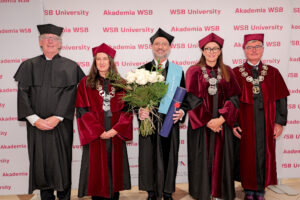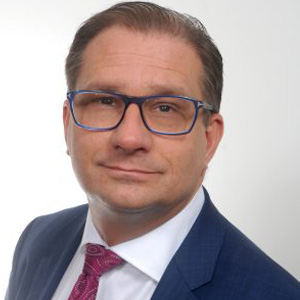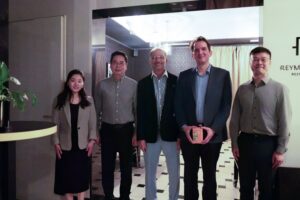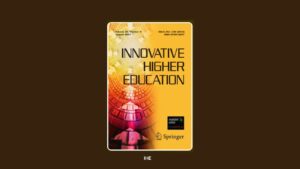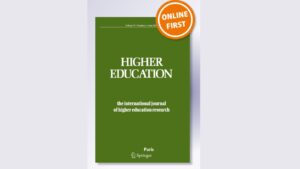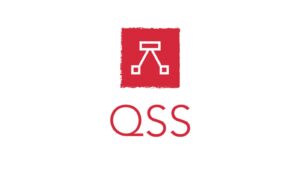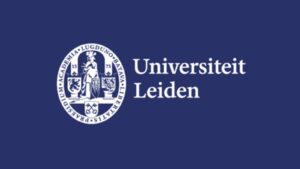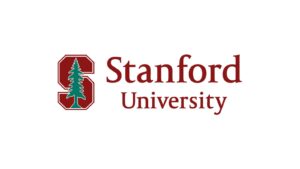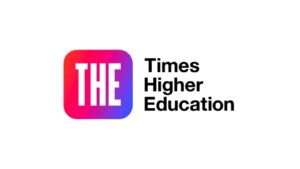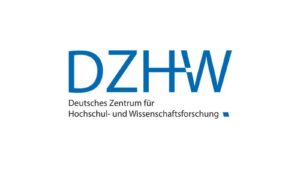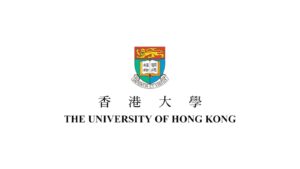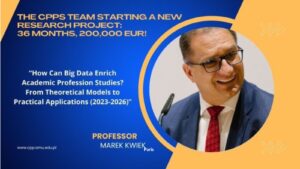Marek Kwiek, professor (full) and chairholder, UNESCO Chair in Institutional Research and Higher Education Policy, University of Poznan, director of IAS.
His research area is quantitative studies of science, sociology of science and higher education research. He currently focuses on international research collaboration, academic productivity, stratification in science, and global academic elites.
Professor Kwiek has been a Principal Investigator or country Team Leader in 25 international higher education research projects funded by the European Commission; the European Science Foundation; and the Fulbright, Ford, and Rockefeller foundations, attracting about 2.7 million euros in research grants.
Professor Kwiek published about 240 papers and book chapters and 10 sole-authored monographs, and he publishes extensively in major academic journals. His most recent papers are in “Higher Education” (2025, 2023, 2021), “Quantitative Science Studies” (2025, 2023), “Journal of Informetrics” (2024, 2021), “Studies in Higher Education” (2024, 2021), “Scientometrics” (2022, 2022, 2020), “Innovative Higher Education” (2025) and “Journal of Economic Surveys” (2021), all available in Open Access.
His recent monograph, Changing European Academics: A Comparative Study of Social Stratification, Work Patterns and Research Productivity was published by Routledge (2019). And his two recent Polish monographs were published by PWN Scientific Publishers (2022 and 2015).
He was a Fulbright Foundation scholar (University of Virginia, 1994-1995), Kosciuszko Foundation scholar (University of California, Berkeley, 1997-1998) and the Reagan-Fascell Democracy Fellow (National Endowment for Democracy, Washington, DC, 2002-2003). He was also a Fulbright New Century Scholar (NCS) from 2007 to 2008 (under D. Bruce Johnstone, SUNY Buffalo) and a Professorial Visiting Fellow at the UCL Institute of Education, London, from 2012 to 2013, as well as a Kluge Fellow in the Library of Congress (2002-2003, unable to take his office). Currently, he is a Visiting Researcher at the German Center for Higher Education Research and Science Studies (DZHW, 2022-2024), Berlin.
Professor Kwiek is also an international higher education policy expert for the European Commission, Eueopean Parliament, USAID, the OECD, the World Bank, UNESCO, OSCE, the Council of Europe, national governments, and higher education institutions and a higher-education reforms advisor in 13 transition countries.
Professor Kwiek has co-authored the Polish National Strategy for the Development of Higher Education until 2020 (Ernst and Young 2010); Europe 2020 Poland (World Bank 2011); and the National Strategy for the Development of Higher Education in Ukraine until 2022 (USAID 2014). He has also co-authored the Heinnovate analytical tool (heinnovate.eu) for the European Commission and OECD (2012) to measure innovation levels of European universities. He was a national expert in the ETER (European Tertiary Education Register) project funded by the European Commission (2021-2024).
He headed an Ustawa 2.0/Law 2.0 national team of 10 academics (2016-2017) who prepared the foundations for recent Polish higher education reforms; he also co-authored the AMU application to the IDUB national excellence program (2018-2019) which resulted in additional 100 million USD (350 million PLN) for AMU in 2020-2026).
He is an Associate Editor of Higher Education (term of the office: 2024-2028), perhaps the most prestigious academic journal in the field. He is a memebr of the Board of Directors of CHER (Consortium of Higher Education Researchers, term of office: 2024-2028).
He is an editorial board member for Higher Education Quarterly, European Educational Research Journal, and British Educational Research Journal as well as for a Springer book series, Higher Education Dynamics.
He was nominated as an International Advisory Board member of German Center for Higher Education Research and Science Studies (Berlin-Hannover, term in office: 2024-2027).
In 2025, he received a Honorary Doctorate from University WSB.
In 2018, he was elected an ordinary member of the European Academy of Sciences and Arts (EASA) in Salzburg (Class V, Social Sciences, Law, and Economics).
In 2021, he was elected an ordinary member of Academia Europaea in London, the European Academy of Sciences (Class “Governance, Institutions and Policies: Education, Health and Welfare”). He belonged to the youngest 15% members of AE at the time, those under 55.
Member of Committee for Science of Science, Polish Academy of Science (2023-2026).
Elsevier and University of Stanford data named him (2021, 2022, 2023, 2024, 2025) among the top 2% of most highly cited researchers in the world and the most highly cited researcher in Poland in “Education”.
Recent Articles:
Kwiek, Marek, Szymula, Lukasz. (2025). Quantifying attrition in science: a cohort-based, longitudinal study of scientists in 38 OECD countries. Higher Education 89, 1465–1493 (2025). https://doi.org/10.1007/s10734-024-01284-0
Marek Kwiek, Lukasz Szymula (2025). Quantifying lifetime productivity changes: A longitudinal study of 320,000 late-career scientists. Quantitative Science Studies 2025; 6 1002–1038. doi: https://doi.org/10.1162/QSS.a.16
Marek Kwiek, Lukasz Szymula (2025). Leaving Science—attrition of biologists in 38 OECD countries. 599(6), March 2025, Pages 799-812. https://doi.org/10.1002/1873-3468.70028
Kwiek, Marek, Roszka, Wojciech. (2025). Are Scientists Changing their Research Productivity Classes When They Move Up the Academic Ladder?. Innovative Higher Education 50, 329–367 (2025). https://doi.org/10.1007/s10755-024-09735-3
Marek Kwiek, Lukasz Szymula (2024). Quantifying attrition in science: a cohort-based, longitudinal study of scientists in 38 OECD countries. Higher Education. Online first: https://doi.org/10.1007/s10734-024-01284-0
Marek Kwiek, Wojciech Roszka (2024). Top Research Performance in Poland Over Three Decades: A Multidimensional Micro-Data Approach. Journal of Informetrics. 18(4) November 2024, 101595, 1-16: https://doi.org/10.1016/j.joi.2024.101595
Marek Kwiek, Wojciech Roszka (2024). Once Highly Productive, Forever Highly Productive? Full Professors’ Research Productivity from a Longitudinal Perspective. Higher Education 87, 519–549 (2024). https://doi.org/10.1007/s10734-023-01022-y
Marek Kwiek, Hugo Horta, Justin J.W. Powell (2024). Using Large-Scale Bibliometric Data in Higher Education Research. Higher Education Quarterly. First published: 14 April 2024
Marek Kwiek, Lukasz Szymula (2023). Young male and female scientists: A quantitative exploratory study of the changing demographics of the global scientific workforce.
Quantitative Science Studies, 4 (4), 902–937,
https://doi.org/10.1162/qss_a_00276
Marek Kwiek, Wojciech Roszka (2023). The Young and the Old, the Fast and the Slow: A Large-Scale Study of Productivity Classes and Rank Advancement.
Studies in Higher Education. On-line first, 1-16.
https://doi.org/10.1080/03075079.2023.2288172
Marek Kwiek (2023). The Globalization of Science: The Increasing Power of Individual Scientists. The Oxford Handbook of Education and Globalization. Ed. by P. Mattei et al. Oxford: Oxford University Press. 726-759.
Marek Kwiek, Wojciech Roszka (2022). Academic vs. biological age in research on academic careers: a large-scale study with implications for scientifically developing systems.
Scientometrics127, 3543–3575.
https://doi.org/10.1007/s11192-022-04363-0
Marek Kwiek, Wojciech Roszka (2021). Gender-Based Homophily in Research: A Large-scale Study of Man-Woman Collaboration,
Journal of Informetrics. 35(3), August 2021, 101171. 1-26.
https://doi.org/10.1016/j.joi.2021.101171
Marek Kwiek (2021). What Large-Scale Publication and Citation Data Tell Us About International Research Collaboration in Europe: Changing National Patterns in Global Contexts.
Studies in Higher Education. 46(12), 2629-2649.
https://doi.org/10.1080/03075079.2020.1749254
Marek Kwiek, Wojciech Roszka (2021). Gender Disparities in International Research Collaboration: A Large-scale Bibliometric Study of 25,000 University Professors.
Journal of Economic Surveys. 35(5), 1344-1380.
https://doi.org/10.1111/joes.12395
Preprints:
Marek Kwiek, Lukasz Szymula (2025). Growth of Science and Women: Methodological Challenges of Using Structured Big Data. https://arxiv.org/abs/2411.00008
Marek Kwiek, Wojciech Roszka (2025). International Research Collaboration Among Top Performers: A Gender Gap Persists. https://arxiv.org/abs/2512.22141
Marek Kwiek, Lukasz Szymula (2025). Men and Women Survivors in Science: A Comprehensive Analysis. https://arxiv.org/abs/2512.22140
Kwiek, Marek and Roszka, Wojciech (2025). The Dream Salary in Academia: A Large-Scale Study of Gender Differences in Financial Expectations. Preprint available from: https://osf.io/preprints/socarxiv/fh6s4
Recent international keynote speeches & invited lectures
(2025) University of Vienna (Austria). December 11, 2025. RISIS Seminars. Research Infrastructure for Science and Innovation. Lecture and Seminar. “Quantifying Lifetime Productivity Changes: A Longitudinal Study of 320,000 Late-Career Scientists”.
(2025) Harvard University (the USA), February 28, 2025. Economics of Science and Engineering Seminar. Lecture and seminar. “Quantifying Attrition in Science: A Cohort-Based, Longitudinal Study of Scientists in 38 OECD Countries”.
(2025) Stanford University (the USA), June 5, 2025. METRICS Meta-Research Innovation Center at Stanford. Lecture and seminar: “Jumpers-Up and Droppers-Down in Research Productivity? No Chance, a Longitudinal Study of Research Productivity of 320,000 Late-Career Scientists”.
(2024) Shanghai Jiao Tong University (China). June 28, 2024. Lecture and seminar: “Quantifying Women’ Participation in Science: Obstacles and Opportunities”.
(2024) DZHW Berlin (Germany), German Center for Higher Education Research and Science Studies (DZHW). May 28, 2024. Lecture and seminar: “Times are Changing, Productivity Patterns Are Not? Top Research Performance Over Time, A Multi-Dimensional Micro-Data Approach”.
(2024) University of Hong Kong (Hong Kong), SIG-MET ASIS&T. May 1, 2024. Lecture and seminar: “Women in Science: What Can We Quantify Using Structured Big Data?”.
(2024) Stanford University (the USA), March 7, 2024. METRICS Meta-Research Innovation Center at Stanford. Lecture and seminar: “Gender Differences in Leaving Science Forever: A Longitudinal, Cohort-Based Study of 2.2 Million Scientists”.
(2024) Leiden University (the Netherlands), February 16, 2024. The Centre for Science and Technology Studies (CWTS), lecture and seminar: “Leaving Science: A Large-Scale, Cohort-Based, Longitudinal Approach, 2000-2022”.
(2024) University of Oxford (UK), Centre for Global Higher Education (CGHE), January 30, 2024. Lecture and seminar: “Quantifying Attrition in Science: A Longitudinal Study of Scientists in 38 OECD Countries”.
(2024) University of Hong Kong (Hong Kong SAR), Faculty of Education, 15 January 2024. Lecture and seminar: “Leaving Academic Science: A Longitudinal Study of Scientists in 38 OECD Countries”.
(2023) DZHW Berlin (Germany), German Center for Higher Education Research and Science Studies (DZHW). November 13, 2023. Lecture and seminar: “Attrition in Academic Science: How Women (and Men) Disappear, A Global and Longitudinal Study of 143,000 Scientists”.
(2023) Sciences Po Paris (France). October 12, 2023. Lecture and seminar “Global Academic Profession Studies: New Data Sources, Methodologies, and Approaches”.
(2023) University of Hanover and DZHW (Germany), October 6, 2023. Keynote Speech, “Structured Big Data and the Global Academic Profession. Implications for Future Higher Education Research”.
(2023) DZHW Berlin (Germany), German Center for Higher Education Research and Science Studies (DZHW), June 27, 2023. “Persistence in High (and Low) Individual Research Productivity: A Longitudinal Study of 270,000 Scientists across 38 OECD Countries”.
(2023) University of Hiroshima (Japan), June 14, 2023. Special Lecture, the 9th HERA Conference, Higher Education in a Changing Global Landscape: Challenges and Prospects, Higher Education Research Association, “Quantifying the Changing Global Academic Profession: What We Know, What We Do Not, and Why?”
(2023) Leiden University (the Netherlands), June 2, 2023. The Centre for Science and Technology Studies (CWTS), seminar: “How Scientists Change Over Time: Persistence in High (and Low) Individual Research Productivity from a Life-Cycle Perspective”.
(2023) University of Oxford, April 4, 2023. CGHE lecture and seminar: “Big Data in Practice: Women (and Men) in Global Science”.
(2023) University of Oslo (Norway), March 27, 2023. Lecture and seminar: “Studying the Academic Profession: Current Dataset and Methodological Options and Their Implications”.
(2023) Education University of Hong Kong (SAR Hong Kong), March 15, 2023. Lecture and seminar: “How to Quantify Academic Careers in the Global Age? Strengths and Weaknesses of Current Approaches and Looking into the Future”
(2023) Stanford University (USA), February 23, 2023. METRICS Meta-Research Innovation Center. Lecture and seminar: „Young Male and Female Scientists: the Changing Demographics of the Global Scientific Workforce”.
(2023) DZHW Berlin (Germany), German Center for Higher Education Research and Science Studies (DZHW), January 10, 2023. Lecture and seminar: „Structured Big Data for National and Global Academic Career Research: New Themes, Approaches & Opportunities”.
(2022) University of Warsaw (Poland), June 23, 2022. Keynote Speech, IREG 2022 Conference, Academic Rankings at the Crossroads: “Global Science, Global Scientists: Big Data and Understanding the Academic Enterprise in the Digital Age”.
(2022) Stanford University (USA), June 7, 2022. METRICS Meta-Research Innovation Center. Lecture and seminar: “Research Productivity from a Longitudinal Perspective: Once Highly Productive, Always Highly Productive?”
(2022) University of Oxford (UK), June 2, 2022. Centre for Global Higher Education (CGHE), March 15, 2021. Lecture and seminar: “Once Highly Productive, Always Highly Productive”? Research Productivity from a Life-Cycle Perspective”.
(2022) University of Lugano (Switzerland), May 11, 2022. RISIS Research Seminar (Research Infrastructure for Science and Innovation Policy Studies). Lecture and seminar: “The Changing Demographics of the Global Academic Workforce: Aging, Expansion, and Sex Differences in Science Across the OECD Countries, 1990-2020”.
(2022) The World Bank, Washington DC (USA) / Riga (Latvia), May 5, 2022. Towards a New Academic Career Framework for Latvia. Presentation: “A comparative overview of trends in payment and performance in academic careers / professorate”.
(2022) University of California at Berkeley (USA), April 20, 2022. Goldman School of Public Policy, Center for Studies in Higher Education (CSHE). Lecture and seminar: “Big Data and Academic Profession Studies: Advantages and Limitations”.
(2022) University of Aarhus (Denmark): Science Studies Colloquium, April 13, 2022. Lecture and seminar: “Man-Woman Collaboration and Academic Careers: A Study of 25,000 University Professors”.
(2022) University of Oxford (UK): Centre for Global Higher Education (CGHE), March 15, 2021. Lecture and seminar: “Academic Profession Studies: What We Gain and What We Lose by Using Big Data”.
(2021) Jeddah (Saudi Arabia): King Abdulaziz University, November 15, 2021. Invited Session “Globalization of Science” at the IREG 2021 Conference Effects of Rankings on Community and Society. “The Dynamics of Global Science and New Tensions in Academic Knowledge Production”.
(2021) Harvard University (USA): the Mahindra Humanities Center, “The Mahindra Seminar Series on Universities”, November 3, 2021. “The Changing Academic Profession and the Stratifying Role of Research”, at the seminar: “Academic Profession in Knowledge-Based Societies – Global Perspectives”.
(2021) Beijing (China): Peking University, Graduate School of Education, October 25, 2021. A seminar on “The Globalization of Science: Implications for Higher Education Research”.
(2021) Oslo (Norway): Department of Education, October 1, 2021. Lecture and seminar: “The Academic Profession in the Era of Global Collaborative Science”.
(2021) London (UK): Times Higher Education New Universities Summit 2021, Transforming the Future: New Visions of Young Universities, June 22, 2021. Invited panel session: “Has the Pandemic Shifted the Research Culture for Young Universities”.
(2021) University of Toledo (USA): the Russel Center, Judith Herb College of Education, June 18, 2021. Lecture and PhD seminar: “The Changing Academic Profession within the Changing Science System – Poland from Global Comparative Perspectives (1989-2020)”.
(2021) University of Oxford (UK): Centre for Global Higher Education (CGHE), June 15, 2021. Lecture and seminar: “The Globalization of Science: The Increasing Power of Individual Scientists?”
(2021) University of Hong Kong (Hong Kong SAR): Comparative Education Research Centre CERC), Faculty of Education, May 18, 2021. Lecture and seminar: “Research Collaboration and Innovations: Who Makes Strategic Decisions In Science and Scholarship?”.
(2021) European University Association, Brussels (Belgium): The 2021 EUA Annual Conference: Universities 2030: From Vision to Reality, April 22, 2021. Invited panel session: “Recognition and Rewards of Academic Career Profiles”.
(2021) Caracas (Venezuela): The UNESCO International Institute for Higher Education in Latin America and the Caribbean (IESALC), March 15, 2021. Expert group seminar on “Higher Education Futures”. Invited presentation: “Higher Education in 2050: High Participation and Vertical Stratification”.
(2021) University of Oxford (UK): Centre for Global Higher Education (CGHE), March 9, 2021. Lecture and seminar: “Elite journals, publishing as prestige-generation, and implications for academic careers“.
(2021) University of Luxembourg (Luxembourg): Opening lecture in a Lecture Series “Science of Science in the Spotlight”, February 24, 2021. “Inequalities in Science: A Study of Major Collaboration Types”.
(2021): World Bank, Washington DC (USA): invited lecture and seminar: “Establishing World-Class Universities in Poland: Challenges and Opportunities”, February 20, 2021.
(2020) University of Oxford (UK): Centre for Global Higher Education (CGHE), December 8, 2020. Lecture and seminar: “Man-Woman Collaboration Patterns in Science: A Study of 25,000 University Professors“.
See website: www.cpp.amu.edu.pl
My full recent CV here.
Google Scholar profile (click).
